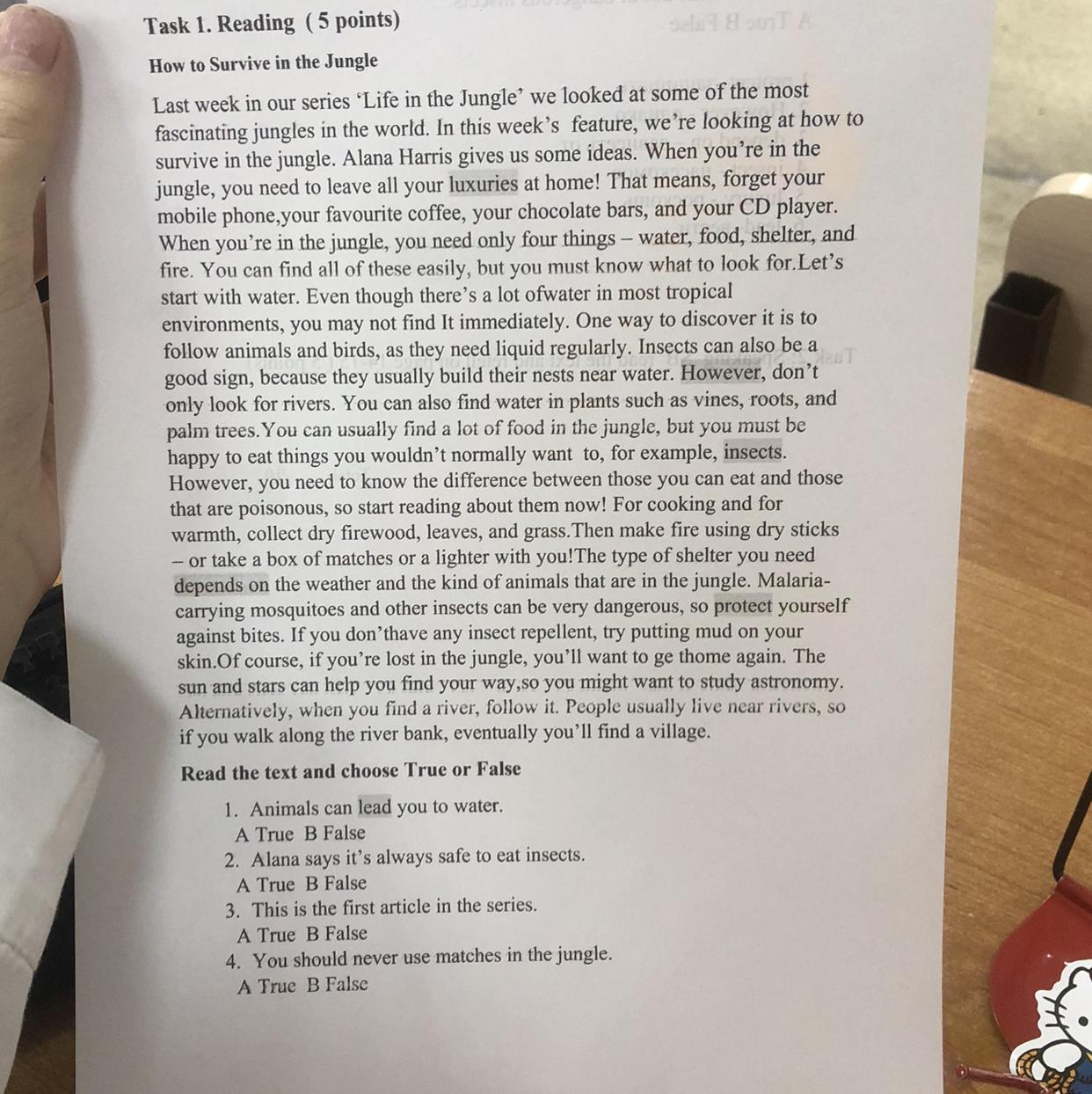Предмет: Английский язык,
автор: Rinanorm
How to Survive in the Jungle
des T
Last week in our series 'Life in the Jungle' we looked at some of the most
fascinating jungles in the world. In this week's feature, we're looking at how to
survive in the jungle. Alana Harris gives us some ideas. When you're in the
jungle, you need to leave all your luxuries at home! That means, forget your
mobile phone, your favourite coffee, your chocolate bars, and your CD player.
When you're in the jungle, you need only four things - water, food, shelter, and
fire. You can find all of these easily, but you must know what to look for. Let's
start with water. Even though there's a lot ofwater in most tropical
environments, you may not find It immediately. One way to discover it is to
follow animals and birds, as they need liquid regularly. Insects can also be a
good sign, because they usually build their nests near water. However,
only look for rivers. You can also find water in plants such as vines, roots, and
palm trees. You can usually find a lot of food in the jungle, but you must be
happy to eat things you wouldn't normally want to, for example, insects.
However, you need to know the difference between those you can eat and those
that are poisonous, so start reading about them now! For cooking and for
warmth, collect dry firewood, leaves, and grass. Then make fire using dry sticks
or take a box of matches or a lighter with you! The type of shelter you need
depends on the weather and the kind of animals that are in the jungle. Malaria-
carrying mosquitoes and other insects can be very dangerous, so protect yourself
against bites. If you don'thave any insect repellent, try putting mud on your
skin. Of course, if you're lost in the jungle, you'll want to ge thome again. The
sun and stars can help you find your way,so you might want to study astronomy.
Alternatively, when you find a river, follow it. People usually live near rivers, so
if you walk along the river bank, eventually you'll find a village.
Read the text and choose True or False
1. Animals can lead you to water.
A True B False
2. Alana says it's always safe to eat insects.
A True B False
3. This is the first article in the series.
A True B False
4. You should never use matches in the jungle.
A True B False
can also don't
Приложения:

Ответы
Автор ответа:
0
1. True
2. False
3. False
4. False
(~⇀‸↼)~ ┏(⇀‸↼)┛ ♪~(⇀‸↼ )ヽ
Автор ответа:
0
Ответ:
1.True
2.False
3.False
4.True
Объяснение:
100%
Интересные вопросы
Предмет: Алгебра,
автор: MaryanParasochka
Предмет: Математика,
автор: violachervonyuk2012
Предмет: Математика,
автор: anna142331
Предмет: Английский язык,
автор: 1otaku187
Предмет: Алгебра,
автор: bekzatzhaksybayev